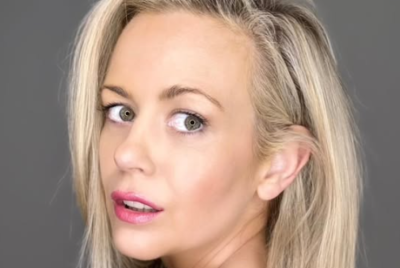Gen Z's Moral Compass: Billie Eilish Takes Aim At Billionaires In Powerful Speech on Greed and Giving

KEY POINTS
- Billie Eilish urged billionaires to donate more while accepting a WSJ Innovator Award in New York.
- Eilish said wealthy people should 'use it for good' and asked, 'Why are you a billionaire?' She announced a $11.5m donation from her tour profits toward climate and equity causes.
- She announced a $11.5m donation from her tour profits toward climate and equity causes.
Billie Eilish used her spotlight at the 2025 WSJ. Magazine Innovator Awards on Wednesday night not just to accept an honour but to challenge some of the wealthiest figures in the world to rethink what they do with their fortunes.
Accepting the Music Innovator Award at New York's Museum of Modern Art, the Grammy- and Oscar-winning artist addressed a star-studded audience that included Meta CEO Mark Zuckerberg, his wife Priscilla Chan, and Star Wars creator George Lucas.
'We're in a time right now where the world is really, really bad and really dark and people need empathy and help more than, kind of, ever, especially in our country,' she said. 'I'd say if you have money, it would be great to use it for good things, maybe give it to some people that need it.'
She went further with a pointed but playful jab: 'Love you all, but there's a few people in here who have a lot more money than me. And if you're a billionaire, why are you a billionaire? And no hate, but give your money away, shorties.'
Putting Her Money Where Her Mouth Is
Before Eilish took the stage, host Stephen Colbert revealed she would be donating $11.5 million (£9.5 million) from her Hit Me Hard And Soft tour proceeds to causes focused on food equity, climate justice, and reducing carbon pollution. The gesture underscored her message of urging others to act while demonstrating her own commitment.
Eilish has long supported sustainability and climate initiatives through her Changemaker Program, working with environmental organisation Reverb and partnering with major touring artists to make live music more climate-conscious.
Growing Debate Around Extreme Wealth
Eilish's remarks come amid growing scrutiny of concentrated wealth and widening inequality. Recent global studies show the number of billionaires rising faster than ever, with wealth at the top accelerating year over year.
Economists and campaigners warn that this level of accumulation, alongside stagnating wages and rising living costs, risks deepening social divides. Many argue that tax reform, stronger regulation, and living-wage policies are needed in addition to philanthropy to restore balance.
The call for billionaires to redistribute wealth is not new. In 1889, industrialist Andrew Carnegie urged the rich to give away their fortunes during their lifetimes.
More than a century later, Bill Gates, Melinda French Gates, and Warren Buffett launched the Giving Pledge, encouraging the world's wealthiest to donate most of their riches.
Yet critics note that only a fraction of signatories have fulfilled their commitments, and many billionaire fortunes have continued to grow despite philanthropic promises.
Billionaires in the Room
Wednesday night's audience included some of the most recognisable figures in technology and philanthropy. Priscilla Chan was honoured separately for her work in scientific philanthropy, while she and Zuckerberg have pledged to donate 99% of their Meta shares over their lifetimes.
Reactions to Eilish's comments were mixed, with polite applause, some laughter, and eyes turning toward the front row where several billionaires sat listening closely.
A Matter Of Values
Those studying wealth inequality note that celebrity advocacy is becoming increasingly mainstream as younger generations demand transparency and fairness from leaders in politics, culture, and business.
Chuck Collins, director at a leading economic policy institute, recently said that while philanthropy has value, real social change requires systemic reform.
'Philanthropy is not a substitute for a fair and effective tax system,' he said. 'Extreme inequality will require restoring progressivity, including a wealth tax and fairer income taxes.'
Eilish's words echo a generational shift: talent and success are celebrated, but vast wealth is increasingly viewed with scepticism unless paired with visible social responsibility.
A Line In The Sand
Eilish's question, 'Why are you a billionaire?' cut through an evening celebrating creativity and achievement. It was less a rebuke than a challenge, less accusation than invitation.
For her part, she has chosen to lead by example, combining public statements with tangible giving. For the billionaires in the room and beyond, her message was clear: wealth alone is not the measure of legacy; impact is.
As she concluded: 'If you're a billionaire, why are you a billionaire? And no hate, but give your money away, shorties.'
© Copyright IBTimes 2025. All rights reserved.





















